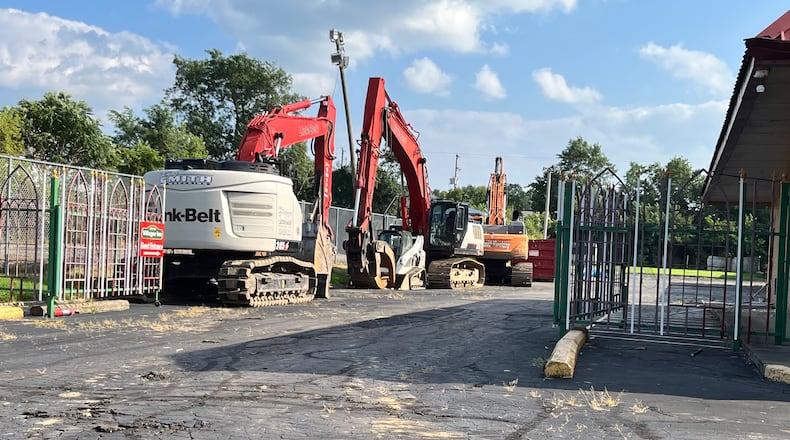The city paid $1.7 million for the property nine months ago.
“This is a sad day,” Commissioner David Estrop said. “I am deeply disappointed we will not be able to move forward on this project and saddened that some in our community will continue to face homelessness.”
As of Friday, representatives of organizations serving the homeless reported that 40 families and 180 individuals were being provided services to address their housing needs.
This week, hopes for remodeling and repurposing the former hotel were complicated by a fire impacting 65% of the rooms in the westernmost part of the structure. The fire chief, director of community development and law director joined in recommending that the property be declared a public nuisance and demolished. In their action to do so, city leaders also approved a $125,000 contract with a company to demolish and remove debris from the site.
In making the decision to abandon the plans the city originally envisioned, officials also noted that the structure had suffered water damage from a water main break shortly after purchase, and vandalism and criminal activity had also significantly increased over the summer, resulting in complaints from neighborhood residents and 18 police calls to the location.
Asked if the city moved too quickly to purchase the property, City Manager Bryan Heck said “we had to address the homelessness situation. We had to provide resources in the community — wrap-around services that included shelter and collaborative partnerships to help those facing homelessness. When your numbers escalate you have to find solutions.”
Assistant Mayor Rob Rue called the Villager Inn “the best opportunity we had at the time to solve this problem at a mass level. When we started facing difficulty with weather it really became a major challenge. We were able to put displaced individuals right away into something for protection.”
Estrop also noted that the challenges were more urgent because the nature of the homeless population changed so radically due to the number of families and children involved that had not been experienced before.
“The urgency still remains, because it’s the families and their children who are often suffering now,” Estrop said. “This was a very good way to quickly accommodate that need for the short term and with a good plan to do it for the long term. Now that long-term option is going to take a little longer obviously.”
The city originally purchased the Villager Inn in December of 2022, using $1.7 million in federal funding from the American Recovery Plan Act, which was targeted to help communities struggling with issues stemming from the COVID-19 pandemic.
At the time of the purchase, the city was facing unprecedented numbers of homeless people and was marshaling resources across the community to address the problem. The purchase of the Villager Inn was seen by city officials as a positive step toward a solution.
Those prospects faltered when city officials sought a development partner to help remodel and renovate the facility for use as a homeless shelter but received no qualified proposals.
Additional efforts failed to attract a partner that felt the project was financially feasible or made sense as a long-term supportive housing solution.
Heck said the search began for bids to demolish the hotel partially or in full during recent months in an effort to best prepare the site for redevelopment. City officials offered no indication so far as to what possibilities that might include.
Earlier this week the city was also forced to relocate six families from the temporary homeless shelter at the Executive Inn due to plumbing issues. The Executive Inn was purchased this year as another short-term solution while the city focused on renovation of the Villager Inn as a long-term alternative. Several families had to be relocated to a local hotel while plumbing repairs are made to the Executive Inn, which is being managed by Homefull, a Dayton-based nonprofit, along with the city.
About the Author

